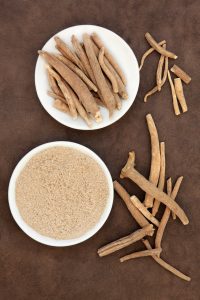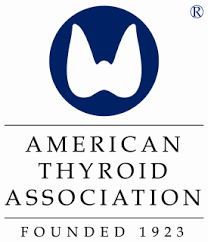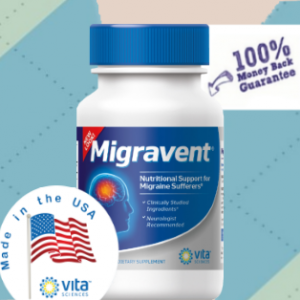February is American Heart Month. In celebration of this annual event, look below for a list of ten things you can start doing right now to support your heart health. Heart disease is the leading cause of death in the United States, with every one in three deaths from the  condition. Prevention is key, so start taking charge of your heart health today.
condition. Prevention is key, so start taking charge of your heart health today.
- Exercise More. The Department of Health and Human Services recommends 30 minutes of moderate exercise such as brisk walking each day for at least 5 days a week.
- Eat More Fiber-Rich Foods. Getting at least 25 grams of fiber a day from fresh fruits, veggies, and whole grains has been found to lower risk of high cholesterol.
- Don’t Smoke or Use Tobacco. Chemicals found in tobacco have been shown to narrow and damage the blood vessels. In addition, tobacco can also lead to hardening of the arteries.
- Limit Processed Food Intake. Many packaged foods are high in sugar, fat, and salt, all of which do not support a heart healthy diet. Stick to fresh or frozen produce, minimally processed food products such as yogurt, cheese, and other fresh dairy products, lean meats, and plant-based proteins such as nuts and seeds.
- Limit Alcohol Intake. In moderation, red wine may be heart-protective, but anything in excess can be harmful to your health. Therefore, limit alcohol to no more than one standard drink a day for women and two standard drinks a day for men. One standard drink is equal to 5 ounces of wine, 12 ounces of beer, and 1.5 ounces of liquor.
- Maintain a Healthy Weight. Carrying excess weight around your abdominal area can increase risk of heart disease. Therefore, keep your waistline below 40 inches for men and 35 inches for women to reduce your heart disease risk.
- Get Plenty of Sleep. Sleep is important for many aspects of health. Most importantly though, it is during slumber that your body regulates fluid and blood pressure in the body. Therefore, sleep is important for maintaining heart health.
- Manage Stress. Whether it be traffic, work, relationships, or financial issues, life can be stressful sometimes. However, it is important to learn to manage your stress to reduce your risk of high blood pressure. Therefore, use relaxation breathing, meditation, yoga, or prayer to help keep you calm during daily stress. However, in some cases, you may need support from a healthcare professional or support group to help you manage life’s stresses.
- Visit Your Healthcare Provider Often. The key to optimal health is prevention. Therefore, if you want to reduce your risk of chronic disease, be sure to visit your healthcare provider on a regular basis to get your numbers checked. Blood pressure, cholesterol, and triglycerides are just some of the numbers that will help you keep track of your heart health status.
- Try Presura from VitaSciences. One to three capsules a day of Presura can support healthy blood pressure and heart health. This is because this heart-healthy supplement contains vitamin B6, B12, C, and the heart-healthy herb Hawthorn berry extract.
Visit the American Heart Association and VitaSciences for more ways you can take control of your heart health.
-written by Staci Gulbin, MS, MEd, RD, LDN
Sources:
American Heart Association (accessed 2017 Feb 1). “7 Small Steps to Big Changes.” http://www.heart.org/HEARTORG/Conditions/My-Life-Check—Lifes-Simple-7_UCM_471453_Article.jsp#.WJLJYoWcHIV
American Heart Association (2017 Jan 25) “Heart Disease and Stroke Statistics 2017 At-A-Glance.” https://www.heart.org/idc/groups/ahamah-public/@wcm/@sop/@smd/documents/downloadable/ucm_491265.pdf
Diane, A. et al. (2016 Sept 14). “Hypolipidemic and Cardioprotective Benefits of a Novel Fireberry Hawthorn Fruit Extract in the JCR: LA-cp Rodent Model of Dyslipidemia and Cardiac Dysfunction.” Food and Function, 7(9): 3943-52.
Harvard University (accessed 2017 Feb 1) “Three of the B Vitamins: Folate, Vitamin B6, and Vitamin B12.” https://www.hsph.harvard.edu/nutritionsource/vitamin-b/#b-vitamins-heart-disease
Mayo Clinic (2016 June 17) “Strategies to Prevent Heart Disease.” http://www.mayoclinic.org/diseases-conditions/heart-disease/in-depth/heart-disease-prevention/art-20046502
Mayo Clinic (2015 June 12) “Top Foods to Improve Your Numbers.” http://www.mayoclinic.org/diseases-conditions/high-blood-cholesterol/in-depth/cholesterol/art-20045192
Moser, M.A. and O.K. Chun (Aug 2016) “Vitamin C and Heart Health: A Review Based on Findings from Epidemiologic Studies.” International Journal of Microbiological Sciences, 17(8): 1328.
 foods. This is done by using microorganisms such as yeast or bacteria under the absence of free oxygen. As a result, the fermentation process can lead to increased concentration of vitamins and nutrients in the final product. In addition, other benefits of fermented foods include enhanced flavor and increased digestibility. Finally, it is important to note that fermented foods are only probiotics if the bacteria culture survives long enough to provide benefits to the GI tract.
foods. This is done by using microorganisms such as yeast or bacteria under the absence of free oxygen. As a result, the fermentation process can lead to increased concentration of vitamins and nutrients in the final product. In addition, other benefits of fermented foods include enhanced flavor and increased digestibility. Finally, it is important to note that fermented foods are only probiotics if the bacteria culture survives long enough to provide benefits to the GI tract. 





